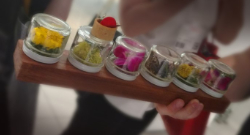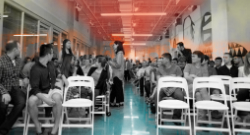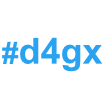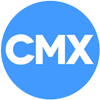Why you should be reading this on a beach...

...While a robot responds to email
We don’t need to tell you that taking time off from work is important.
Or do we?
If everyone were taking enough vacations, would the world’s most prominent periodicals be running stories year after year cajoling us to do so?
2017: “How to Take More Vacation Time in 2017” (New York Times)
2016: “The Data-Driven Case for Vacation” (Harvard Business Review)
2015: “Why Americans just won’t take time off” (Fortune)
2014: “Take A Vacation: It's Good for Productivity And The Economy” (Forbes)
2013: “Relax! You’ll Be More Productive” (New York Times)
2012: “To Stay on Schedule, Take a Break” (New York Times)
In the summertime spirit of unfettered enjoyment, we’ll eschew the productivity angle and explore why taking time off from work is good for your brain and body—and how robots might (or might not) be able to help you in this pursuit—in the On Our Minds section, below.
On our minds
The word is out (actually, its been apparent for years): We must take time to rest and unplug in order to be our best selves - at work and beyond.
• " Taking regular breaks from mental tasks improves creativity," reports the New York Times.
• "The importance of restoration is rooted in our physiology," explains another NYT story. “Human beings… are meant to pulse between spending and recovering energy.”
• "Vacations' benefits include: a broadening of horizons and the opportunity for learning and intercultural communication; promotion of peace and understanding; personal and social development; and health and wellbeing," says Psychology Today.
If you’re among the 55 percent of Americans who leave paid vacation days on the table, we must join the aforementioned crowd who keeps gently admonishing you, in the name of science, to please, please take those days off and do something you love with them. Don't wait till you read the same messages in December!
However, if you’re a member of the full-vacation-taking, slightly-less-than-other-half of this national equation: we salute you, and we expect you won’t be in the minority for long. Why?
At the individual scale, we’re seeing workers take their downtime and wellness more seriously. Apps like HealthyOut (for finding personalized healthy eats at local restaurants), Sleep Cycle (for analyzing your sleep patterns, waking you up when you’re snoozing the lightest) and Happier (for sharing gratitude by exercising your "happiness muscle") have joined a proliferation of fitness and activity trackers in an extension of our healthy self-quant revolution. Simultaneously, meditation apps like Headspace, which aim to help users increase focus and reduce stress, are increasingly used for in-office micro-vacations.
At the organization scale, unlimited vacation policies are taking shape at companies both large (General Electric) and small (Pocket). More organizations are bringing downtime amenities on-site with each passing season, from massages and yoga to coaching style therapy. (See the Showtime series Billions for a good pop culture example.) At Convene's future office event in NYC this past June, a meditation practitioner led the crowd in mini mindfulness sessions before each segment of the day-long conference. We’re even seeing corporate naming choices that suggest wellbeing at work—like Breather coworking spaces.
Now that we know 1) we must seize opportunities to rest, and 2) proper vacations and self-care activities are gaining ground in the mindful workplace of the 21st century, the question arises: Who will do our work when we take the day off?
Robots? (Please?)
Yes and no.
Remember how in the early and mid 20th century, we thought dishwashers and laundry machines would effectuate a plague of bored housewives? Well, a century later, we still don’t have that problem. As Quartz recently reminded us: "We’ve been worrying about the end of work for 500 years"—yet it seems mass automation hasn’t put us all out of our jobs yet. Quite the opposite: we have more to do now than ever before.
Take it Harvard Business Review: "We can’t help but think of the cornucopia of time-saving technologies that were created during the information and cell phone revolutions. But rather than technology helping people work less, allowing for more downtime and time off, nearly half of office-based workers say technology has actually increased the amount of time they spend working."
Are all our robots just making make work for us (see your inbox)? Or maybe we just shouldn’t expect linear, one-for-one tradeoffs (e.g., "In the next hour, a machine will wash the clothes; therefore, I will take a nap")?
The answers are complicated and the story of automation is clearly one that’s still unfolding, but in general, PLASTARC believes the best scenarios are achieved when people and machines work together to make life better. We used to have to physically go to our workplace to access tools like the fax machine or landline. Then we became able to take those tools with us, via email and cell phones. Now and in the future, our physical workplaces themselves will be tech-enabled, and will collect and report vital data about us (like the ambient temperature we prefer, the times of day we’re most likely to be arriving and leaving, and which conference room we always want to book) that will enable them to serve us better.
So while you might still come back to a bigger stack of work on Monday, if you take the day off Friday, we (and science) think you’ll still be better off than if you hadn’t taken a break. While robots might not yet be smart enough to write that big report for you, they can at least support your efforts by remembering how you like your coffee.
From the archives
In Case You Missed It

FitCity 2017
Back in June, we joined the celebration of this decade long platform for healthy environments. We exchanged ideas, informed strategies, and advanced a community of practice for promoting health through physically active and acessible environments.

NeoCon 2017
You can read our observations from the event at large in Work Design. We joined our client West Elm Workspace in Chicago for the 49th year of this huge design expo. We were thrilled that West Elm's Parasol Meeting Table, which we helped to concept, won Interior Design magazine’s HiP Award!

Cambridge Pitch Night
Back in June, we ventured off to Cambridge, MA (plus London, UK and Washington, DC) to help our client Verizon celebrate the opening of their latest, powered by Verizon coworking spaces.
Looking Ahead
Fall is back to school and seems to be conference season for many industries. If you can't find us at the office, it's likely that we're on stage. Check out our schedule:

Accelerating Innovation: DesignX@MIT
On September 13 in NYC, we'll be having breakfast with leaders behind DesignX, one of MIT’s newest startup accelerators - a group dedicated to innovation in the built environment. Previously, we've mentored the first class of startups.

Bloomberg Data for Good Exchange
On September 24, we’ll be back in NYC for this exciting annual conversation about the public interest applications of data science. We’re especially excited to return this year after a great experience in 2016, when we presented our paper on transforming the building industry and health outcomes through social data-supported design.


